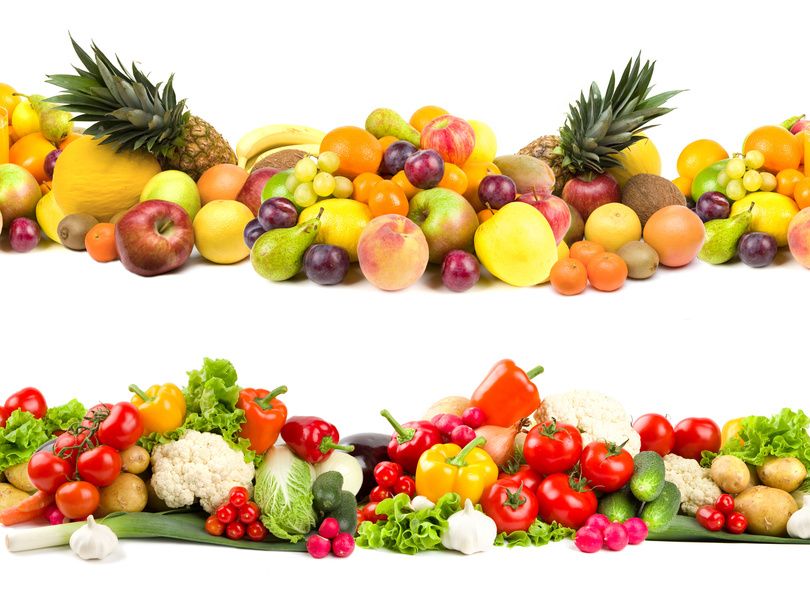
Dietary fiber and its effect on our body
Surely you have heard of dietary fiber or even know some of it. But maybe you’re not quite so sure what it is after all. Today we will explain to you what fiber is and what effect it has on our body.
What are dietary fibers?
Dietary fibers are plant fibers that serve as support and structural elements in the plant cell. These are mostly long-chain carbohydrates that are predominantly indigestible for our bodies. Examples of dietary fibers are cellulose, lignin, pectins, etc.
Dietary fibers are divided into (water-)soluble and (water-)insoluble. Insoluble dietary fibers, which are mainly found in cereals/whole-grain products, have a high swelling or water-binding capacity. Soluble dietary fibers, mainly found in fruits, vegetables and legumes, are broken down by bacteria in our intestines.
The properties of dietary fiber are now known to us, but…
How do they affect our bodies?
Dietary fiber has important functions in our body – especially in relation to our digestion. Due to a longer retention time in the stomach, dietary fiber causes an earlier and longer lasting satiety. Dietary fiber also serves as a blood sugar stabilizer, because it delays the breakdown of carbohydrates.
The water-insoluble dietary fibers promote digestion through their swelling or water-binding capacity, which in turn ensures a higher stool volume. The higher stool volume causes pressure against the intestinal wall, which stimulates intestinal peristalsis (= movement of the food pulp by muscle contraction). This results in a shortening of the transit time of the food pulp in the colon and thus more frequent defecation.
Especially the water-soluble dietary fibers serve as “food” for our intestinal bacteria. During the breakdown of dietary fiber by bacteria, short-chain acetic acids are formed, which in turn leads to the proliferation of intestinal bacteria as well as the intestinal contents. Moreover, a good balance of these intestinal bacteria is a prerequisite for healthy intestinal flora.
Can dietary fiber also have a preventive effect on diseases?
The DGE (German Nutrition Society) writes the following about this:
“[…] Thus, the risk of developing obesity, hypertension, coronary heart disease, type 2 diabetes mellitus, colon cancer, and dyslipidemia can be reduced.”
[1]
Thus, dietary fiber can have a cholesterol-lowering effect:
Our body produces bile acid, which is necessary for the digestion of fats. Now, however, there are certain dietary fibers that carry bile acid out of the body with the stool. In order for the organism to produce bile acid again, it needs a certain building material – namely cholesterol. In this way, our body takes cholesterol from the blood in order to be able to produce new bile acid. As a result, the cholesterol level in the blood is lowered.
Today you learned a lot about fiber and its effect on our body. Next time, we’ll tell you which foods are particularly rich in fiber and how much of it you should eat as a minimum. However, you should already know that a change from a low-fiber diet to a high-fiber diet should happen gradually and that you should drink enough.
After“Dietary fiber and its effect on our body”, here is another recipe for
Spelt and sesame fritters >>
Sources
https://www.dge-medienservice.de/ballaststoffe.html
https://www.dge.de/index.php?id=52
http://dr-zerr.gmxhome.de/ballaststoffe.htm
[1] https://www.dge-medienservice.de/ballaststoffe.html
Address:
Gasteigweg 25,
5400 Hallein
Austria
Opening hours:
Monday to Thursday: 09 – 16:00
Friday: 09 – 12:00
Contact:
Phone: +43 6245 83282
E-mail: info@agrisan.at
Address:
Gasteigweg 25,
5400 Hallein
Austria
Opening hours:
Monday to Thursday: 09 – 16:00
Friday: 09 – 12:00
Contact:
Phone: +43 6245 83282
E-mail: info@agrisan.at

